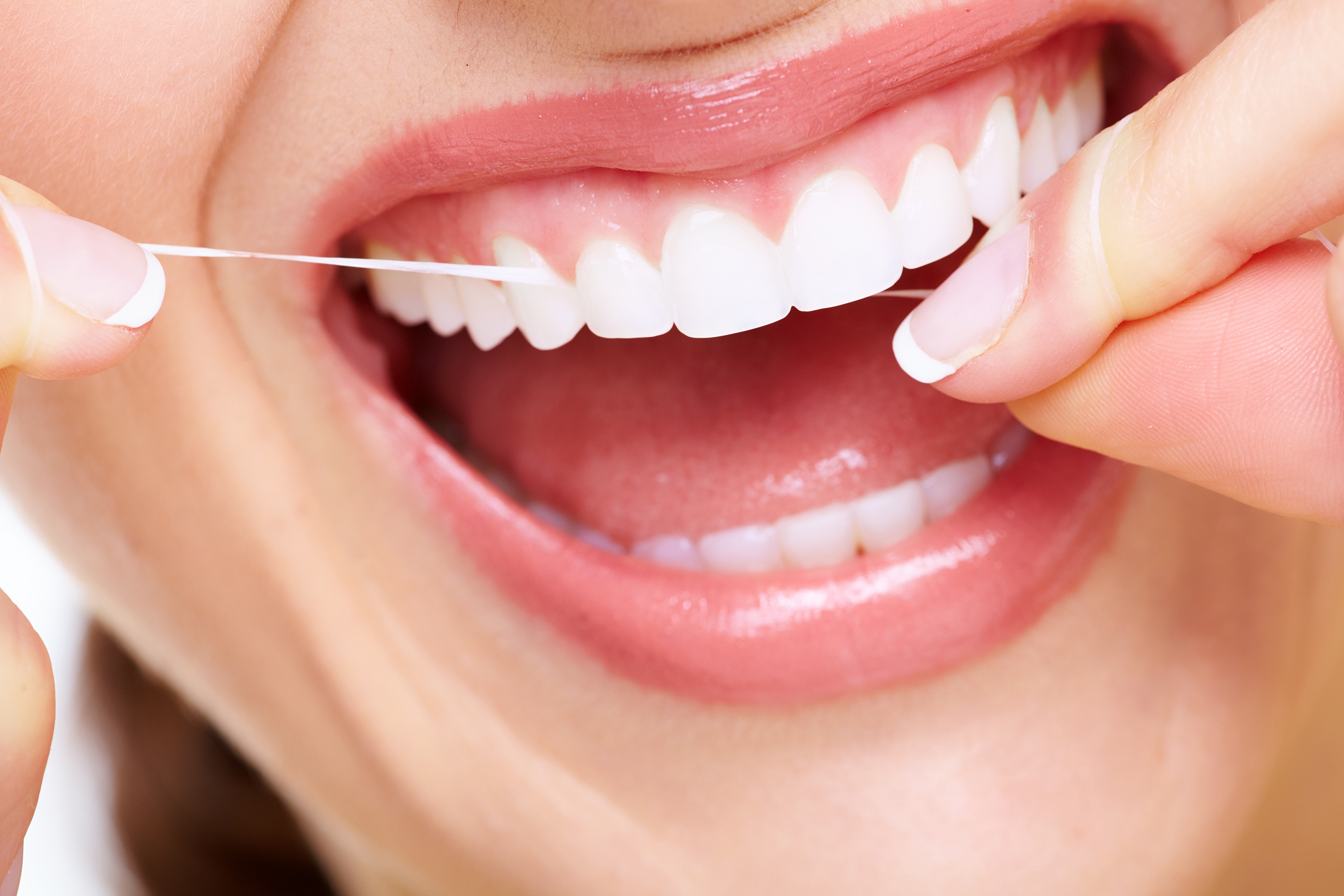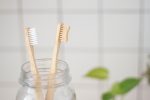You’ve been at the dentist afraid to answer the infamous question, “How often are you flossing?” Should you say once a day or twice? What answer is the intimidating tooth-wise guy looking for anyway?
The American Dental Association recommends you clean between your teeth once a day, but if you’re honest with yourself (and your dentist), you probably are flossing only a couple times a week, hence the anxiety when the question comes up. If you’re like me, I always mumble something about how I don’t floss as much as I should, which is followed by a lengthy explanation that makes me feel worse about my dental hygiene and a sample of floss to take home.
For as long as I can remember, that exact scenario has happened every time I’m sitting in the cold, mechanical chair waiting to hear how many more cavities I have since the last time I was there. Dentists and dental hygienists make it abundantly clear that flossing may help prevent gum disease, cavities and removes the sticky plaque that releases acid and eats away at your teeth (such a wonderful mental picture). The plaque that’s left behind from not cleaning between your teeth, or not doing so properly, will eventually become tartar and can only be removed by your dentist during a cleaning. All of this sounds pretty frightening when someone with a metal pick inside your mouth is towering over you.
There is some good news, though: flossing doesn’t work. In the past, flossing had been included in the Dietary Guidelines for Americans, which are guidelines for nutritional health that are required by law to contain evidence-based recommendations. The guidelines come out every five years but the latest edition, which was released in 2015, doesn’t include flossing. Prior to the release of the 2015 Dietary Guidelines, the Associated Press filed Freedom of Information Act requests for scientific evidence on flossing from the departments of Health and Human Services and Agriculture.
The AP received a letter stating that suitable research was never done as it was supposed to be and the flossing recommendation would be omitted from the latest version of the Dietary Guidelines. With just that information alone, you might deduce that flossing doesn’t work because there isn’t evidence to back up the claims of how helpful it really is. There were some research studies conducted on flossing, but they produced unstable results.
The AP analyzed the most laborious research conducted over the past 10 years, specifically focusing on 25 studies that dealt with comparisons concerning the combination of brushing and flossing versus just brushing. They found the evidence for flossing to be “weak, very unreliable, of very low quality” and carrying “a moderate to large potential for bias.” In other words, there is no solid proof that flossing works.
The American Dental Association and the American Academy of Periodontology, the two leading professional groups in the flossing community, cited various studies to verify their claims, but the studies were flawed. Some of the studies only last a couple of weeks (not nearly enough time for a cavity to develop), others tested few people and some used outdated methods. In addition, that research focused on other aspects of poor dental health, such as bleeding and inflammation, which are not directly associated with the lack of flossing but instead with other dental-hygiene practices.
Despite numerous studies that point to the absence of proof that flossing helps prevent gingivitis, tooth decay and plaque buildup, dentists still try to argue that it’s an imperative component to a dental hygiene routine when done correctly. On Huffington Post, dentist Andrew Swiatowicz shared his opinion on the matter in an article titled “I’m a Dentist. We Have To Talk About Flossing.“ In it, he referenced a 2006 study, “Dental Flossing and Interproximal Caries: a System Review,” in which researchers wanted to see the difference between flossing at home and being flossed by professionals, and whether or not it made an impact on overall dental hygiene.
The study tested 808 children, between the ages of 4 and 13, that were split into three different groups: professionally flossed once every three months, professionally flossed five days a week and flossing at home. After 18 months, the results showed that the kids who were professionally flossed once every three months and the home-flossers didn’t have any decrease in cavity risk, while the kids being professionally flossed every five days had a 40 percent decrease in cavity risk. Swiatowicz concludes that the results prove that properly flossing, rather than just flossing, is key to reaping the benefits of the practice. However, those numbers don’t scream results to me.
In addition to outdated research and small sample sizes, the flossing industry has funded many of the studies or even did the research themselves, which leads to incredibly biased results. The flossing industry, including prominent vendors such as Procter & Gamble, Johnson & Johnson, Colgate-Palmolive and Waterpik, are set to see a 5.02 percent increase in the global dental-floss market during the 2017-2021 period, which translates to millions of dollars in revenue.
Companies in the flossing industry only aim to gain by releasing their biased data to fool the general public into believing they need to buy more floss to prevent a laundry list of potential dental problems. Who wouldn’t want to spend a couple of dollars to prevent spending thousands in dental bills? The argument seems pretty foolproof on the surface, which is exactly where the flossing industry hopes you’ll stop.
In reality, flossing doesn’t work the way dentists and the flossing industry portray it. While there isn’t any harm in spending five extra minutes dragging a piece of minty thread through your teeth every day, it isn’t going to prevent you from getting a whole host of dental problems.

















